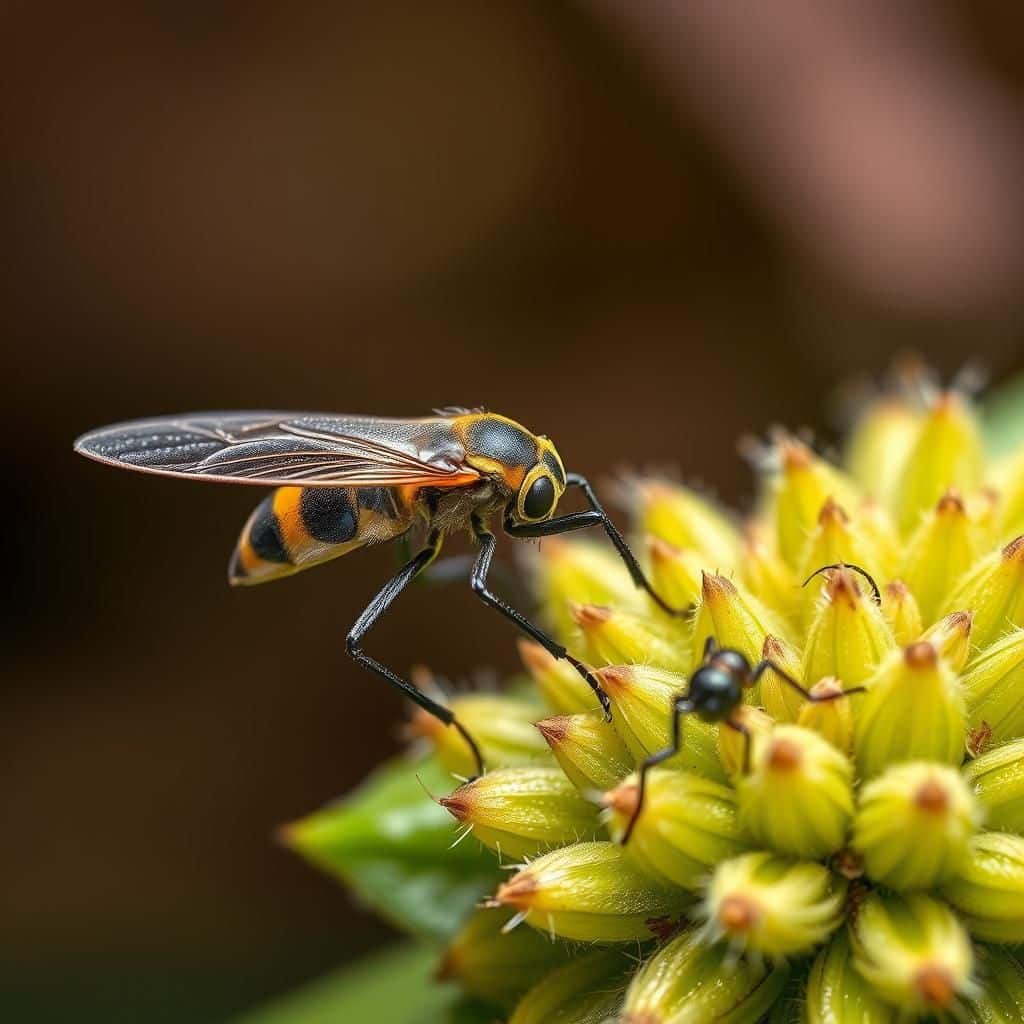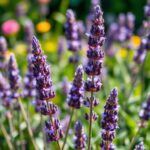How to Stop Bugs Eating Plants: Effective Tips and Natural Solutions

Bugs can be a gardener's worst nightmare, wreaking havoc on plants and disrupting the delicate balance of your green oasis. From aphids to caterpillars, these pests can swiftly diminish plant health, beauty, and productivity. However, rather than resorting to harsh chemicals, there are effective tips and natural solutions that can help safeguard your garden. In this article, we will explore various methods to stop bugs from feasting on your plants, including organic treatments, preventative measures, and beneficial companion planting techniques. With the right approach, you can protect your garden while preserving its natural beauty and ecosystem.
How to Protect Your Plants from Bugs
To effectively stop bugs from eating your plants, it is essential to implement a combination of preventive measures and treatments. Start by regularly monitoring your plants for signs of infestations, such as holes in the leaves or visible insects. Keep your garden clean by removing debris, dead leaves, and weeds that can harbor pests. Introducing beneficial insects like ladybugs or lacewings can also naturally control bug populations. Additionally, using homemade solutions like neem oil or insecticidal soap can deter pests without harming your plants. Lastly, consider planting pest-resistant varieties or companion plants that naturally repel insects, enhancing the overall health and resilience of your garden.
Identifying Common Plant Bugs
Recognizing the types of bugs that are damaging your plants is the first step toward effectively managing them. Common plant pests include aphids, spider mites, whiteflies, and caterpillars. Each of these insects has distinct characteristics, such as size, color, and feeding behavior. By regularly inspecting your plants and understanding the signs of infestation associated with each pest, you can take action more swiftly to minimize damage. Documenting your findings can also help you track patterns and develop a more effective pest management strategy.
Preventive Measures for Plant Health
Maintaining the overall health of your plants is crucial in preventing pest infestations. Practices such as proper watering, adequate sunlight, and appropriate fertilization contribute to strong plants that can better withstand insect attacks. Additionally, practicing crop rotation and interplanting can disrupt the lifecycle of pests and reduce the likelihood of infestations. Regular pruning helps improve air circulation, which further supports plant vitality and deters bugs that thrive in moist, crowded conditions.
Natural Pest Control Methods
To control pests without resorting to harsh chemicals, many gardeners turn to natural pest control methods. Homemade sprays made from garlic, pepper, or soap can be effective in deterring insects when applied regularly. Companion planting, where certain plants are grown alongside others to repel pests, is also a popular and sustainable approach. For example, marigolds are known to repel nematodes and other harmful insects. Additionally, introducing predatory insects, such as ladybugs, can help keep pest populations in check in an environmentally friendly manner.
See also:
Using Insecticidal Soaps and Oils
Insecticidal soaps and oils are popular treatments for combating annoying bugs without harming the plants. These products suffocate pests by blocking their breathing pores and can be applied directly to infested areas. Neem oil, derived from the seeds of the neem tree, has both repellent and toxic properties that can effectively disrupt insect life cycles. It's essential to follow the manufacturer's instructions for application rates and timing, ensuring that the products are used safely and at optimal effectiveness.
Planting Pest-Resistant Varieties
Choosing pest-resistant varieties when planning your garden can significantly reduce the likelihood of infestations. Many plant breeders offer varieties that have been specifically developed to deter pests through natural means or better resilience to insect-related damage. Researching and selecting these varieties for your garden can save time and effort in pest management while promoting a healthier garden ecosystem. Additionally, native plants tend to be more robust and better suited to the local environment, thereby reducing the risk of pest problems.
| Plant Pest | Identification | Control Method |
|---|---|---|
| Aphids | Small, green or black insects | Insecticidal soap or ladybugs |
| Spider Mites | Tiny, red or yellow spots on leaves | Neem oil spray |
| Whiteflies | Small, white moth-like insects | Sticky traps and insecticidal soap |
| Caterpillars | Large larvae, often with a varied color | Hand-picking or Bacillus thuringiensis (BT) |
Understanding the Importance of Natural Pest Control in Gardening
Using natural pest control methods not only helps in managing *bug infestations* effectively but also promotes the overall health of your garden. By opting for organic solutions instead of harsh chemicals, gardeners can maintain a balanced ecosystem that encourages beneficial insects while deterring harmful pests. Implementing solutions such as companion planting, introducing *predatory species*, and utilizing natural repellents can arise more sustainable long-term management of pests, leading to healthier plants and a more productive garden.
Companion Planting Techniques
Companion planting is a method of growing different plants together that can enhance growth, repel pests, and attract beneficial insects. By strategically placing plants that have complementary growth habits or pest-repelling characteristics, gardeners can effectively reduce the likelihood of *bug infestations*. For instance, planting marigolds alongside vegetables can deter aphids and nematodes, while including basil near tomatoes can help ward off fruit flies. This technique not only protects plants but also promotes biodiversity in the garden.
Attracting Beneficial Insects
Beneficial insects, such as ladybugs, lacewings, and parasitic wasps, play a crucial role in maintaining pest balance in your garden. By planting a variety of *nectar-rich flowers* like yarrow, dill, and fennel, you can create an inviting habitat for these natural predators. As they establish themselves, these insects help keep pest populations in check, reducing the need for chemical interventions. Fostering a friendly environment for beneficial insects is an effective and eco-friendly approach to pest management.
See also:
Homemade Natural Repellents
Creating homemade natural repellents is a practical way to deter pests without introducing synthetic chemicals to your garden. Mixtures using common kitchen ingredients such as garlic, pepper, or soap can be effective against various pests. For instance, a spray made from crushed garlic and water acts as a natural repellent against aphids and beetles. These solutions are not only easy to make but also budget-friendly, allowing gardeners to combat pests while remaining environmentally conscious.
Regular Maintenance and Inspection
Consistent maintenance and inspection of your plants is vital to prevent and manage pest issues effectively. Regularly checking your plants for early signs of infestations, such as discolored leaves or sticky residue, allows for quicker intervention. Additionally, practices like pruning dead or damaged foliage can help eliminate potential pest habitats. By keeping your garden clean and attentive, you create a robust environment that is less hospitable to unwanted bugs.
Creating a Healthy Soil Environment
Building a healthy soil ecosystem is foundational for plant vigor and resilience against pests. High-quality soil rich in *organic matter* enhances root development and encourages stronger plants better equipped to withstand pest adversities. Incorporating compost, practicing crop rotation, and using mulch can improve soil structure and fertility. As plants grow healthier, they naturally develop traits that deter pests, leading to a lower risk of infestations and a thriving garden overall.
Questions from Our Readers
What are some natural ways to stop bugs from eating plants?
Using natural remedies can be an effective way to deter pests. For example, you can use a mixture of water and dish soap to spray directly on the affected plants. Additionally, introducing beneficial insects like ladybugs can help control pest populations naturally.
How can I identify which bugs are damaging my plants?
To identify pests, closely inspect your plants for signs of damage such as holes in leaves or visible insects. Taking clear photos and comparing them to online resources or using a plant identification app can help determine the specific bugs causing the issue.
See also:
Are there any chemical treatments that can effectively stop bugs from eating my plants?
Yes, there are various chemical treatments available, such as insecticides that target specific pests. Make sure to choose a product that is safe for the plants you are treating and follow the instructions carefully to avoid harming beneficial insects or the surrounding environment.
Can companion planting help prevent bugs from eating my plants?
Absolutely! Companion planting involves growing plants together that can deter pests naturally. For instance, planting marigolds alongside vegetables can help repel certain insects, creating a healthier garden environment for your plants.

If you want to read more articles like How to Stop Bugs Eating Plants: Effective Tips and Natural Solutions, we recommend you check out our Gardeners category.
Leave a Reply
Related Articles